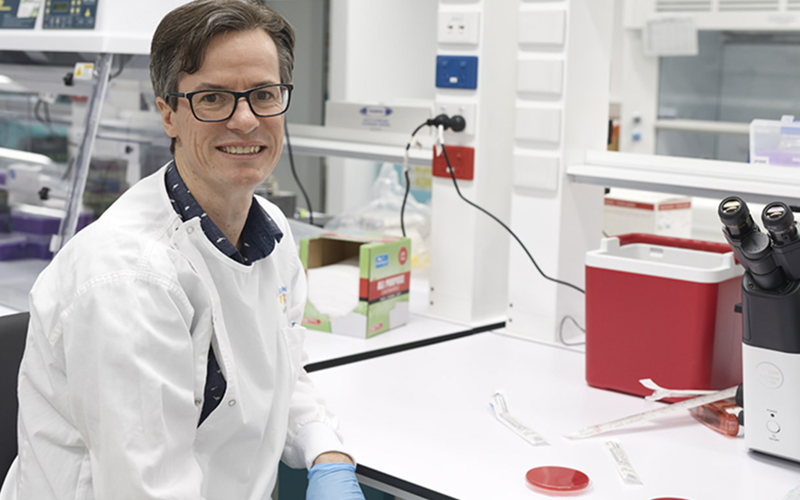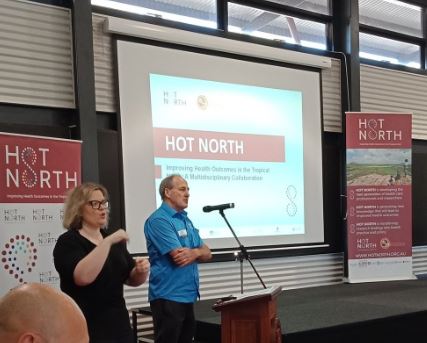Search
Research
The microbiology of impetigo in Indigenous children: associations between Streptococcus pyogenes, Staphylococcus aureus, scabies, and nasal carriagePrevalence and antimicrobial resistance of impetigo pathogens in a randomised, controlled trial of impetigo treatment conducted in remote Indigenous communities

News & Events
WA Health funding supports development of rapid test for antibiotic-resistant skin infections in Aboriginal childrenA rapid test to detect antibiotic-resistant skin infections in Aboriginal children could be a step closer, thanks to support from the FHRIF.

News & Events
Expert researchers converge on Broome to tackle health challenges in Northern AustraliaOver 100 researchers and health professionals from around Australia have united in Broome this week to address the major health battles facing people living in the tropical north of the country.

News & Events
Top scientist recruited to WA for HOT NORTH FellowshipThe Kids has recruited Dr Timothy Barnett to embark on a Fellowship to help close gaps in health outcomes between Indigenous and non-indigenous kids

News & Events
$1 million funding boost to help Aboriginal kids with skin infectionsThanks to a $1 million funding grant, Dr Asha Bowen from The Kids Research Institute Australia is on track to change Aboriginal children's skin infection statistics.
Research
Perinatal risk factors associated with skin infection hospitalisation in Western Australian Aboriginal and Non-Aboriginal childrenWe have quantified the relative influence of perinatal risk factors associated with skin infection hospitalisations in WA children

News & Events
Six-minute Strep A tests dramatically cut wait time in remote settingsChildren at risk of potentially life-threatening Strep A infections no longer have to wait five days for timely treatment, thanks to a The Kids Research Institute Australia study conducted in the remote Kimberley region of Western Australia.
Research
Postsepsis Care Needs in Children and Families: Single-Center, Codesign Qualitative Research from Western AustraliaSepsis, for children and their parents, is a life-altering illness with far-reaching psychosocial and physical impacts. We aimed to explore the needs of such patients and their parents after hospital admission for sepsis to inform the development of a Western Australian postsepsis care service.
Research
Pediatric Staphylococcus aureus Bacteremia: Clinical Spectrum and Predictors of Poor OutcomeStaphylococcus aureus is a common cause of bacteremia, yet the epidemiology and predictors of poor outcome remain inadequately defined in childhood. ISAIAH (Invasive Staphylococcus aureus Infections and Hospitalizations in children) is a prospective, cross-sectional study of S. aureus bacteremia in children hospitalized in Australia and New Zealand over 24 months.

News & Events
Four BrightSpark Fellowships awarded to early-career researchers at The KidsCongratulations to four outstanding early-career researchers from The Kids Research Institute Australia, who have been awarded BrightSpark Foundation fellowships and project funding for 2026.
